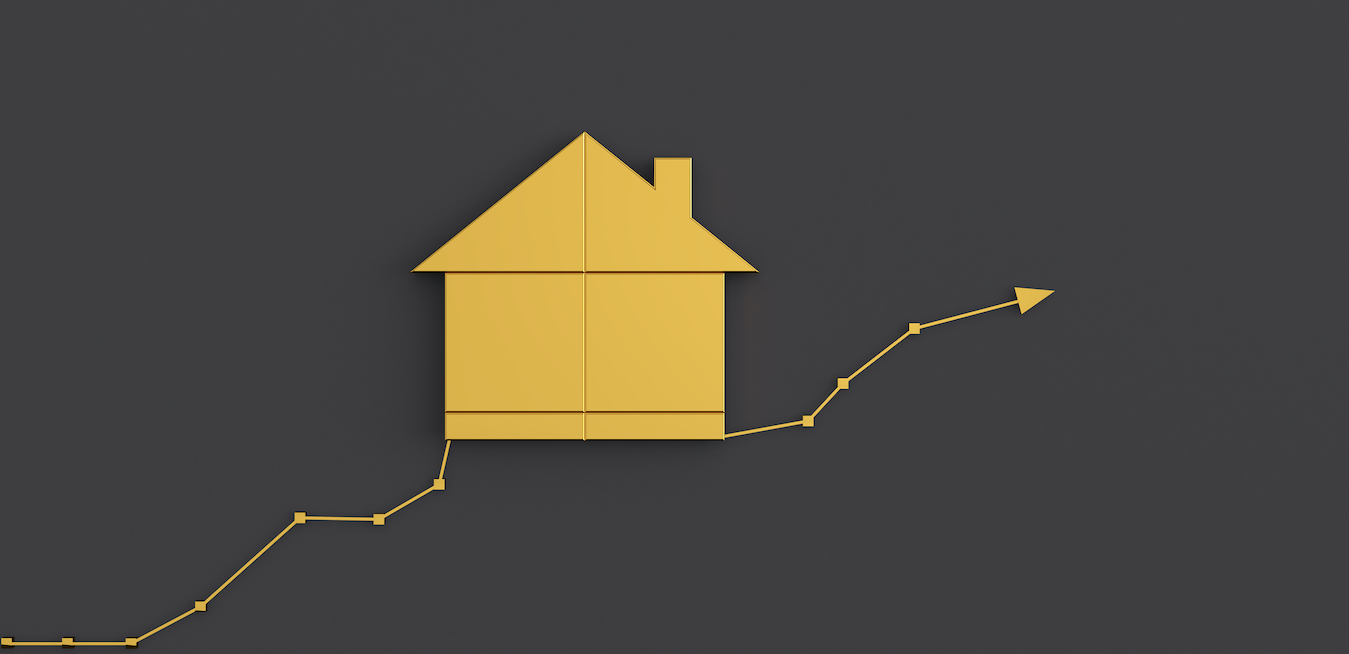Calculating Home Equity: How to Figure It Out & Use It

Since you first started making monthly payments towards your home, you have been gradually building equity. Equity is an important financial asset, and you can leverage your home equity in many different ways.
What is Home Equity?
Your home equity is the value of the investment that you have made in your home. The equity fluctuates as you make payments towards your home, and the changing housing market can also affect the equity.
Your equity is defined as the fair market value of your home, minus your mortgage balance or any liens. Understanding your home equity is important since it contributes to your total net worth and is often a major investment.
How Much Equity Do I Have?
Leveraging equity is one of the greatest perks of homeownership. By taking out a home equity loan or a home equity line of credit, you can renovate your home, pay for college, or cover another large expense. With a home equity loan, you will receive the lump sum of funds all at once, but with a line of credit, you can draw down those funds gradually as you need them.
But before you start planning to take out a loan or line of credit, you will need to determine how much equity you have, which directly affects the maximum amount of money that you can expect to receive.
>> Related read: Reasons to Buy a Home Instead of Rent
Start With a Baseline Calculation
While there are multiple ways to calculate your home equity, this is one of the simplest methods that you can easily do yourself:
- Start with the current appraised value of your home.
- Add together any debts on your home, including the remaining balance of your mortgage and any home equity loans or balances on home equity lines of credit.
- Subtract the total amount that you still owe on your home from the appraised value.
- The resulting figure is your home equity.
Understand How Banks Calculate Equity
While the above baseline calculation can give you an approximate idea of how much home equity you have, banks sometimes use additional calculations to determine the size of the home equity loan that you may borrow, whether you can refinance your home, or whether you need to pay private mortgage insurance.
Banks use a loan-to-value (LTV) ratio for calculating equity. You can perform this calculation yourself:
- Determine your current loan balance.
- Divide your current loan balance by your home’s appraised value.
- Multiply the result by 100.
- The resulting percentage is your loan-to-value ratio.
If you want to ensure your LTV is accurate, then you really need to start with a professional appraisal of your home. Many lenders require an appraisal before they will approve your mortgage, and that appraisal gives them the information they need to calculate your LTV ratio.
Top Uses for Home Equity
Building equity in your home is about more than just paying down your mortgage. One of the best ways to access that equity is via a cash-out refinance. You can often access home equity loan funds in just a few days, making these loans a versatile choice suitable for many different uses.
Fund an Education
Many homeowners choose to use their home equity to help fund education costs, such as the cost of college, graduate school, or a trade school. These options may be the perfect solution for someone looking to go back to school, or for a parent who wants to cover some or all education costs for a child.
Pay for Hajj or Umrah
Some homeowners choose to access their available equity to pay for a lifelong dream, a trip to hajj, which is an obligation on all Muslims who are able to make this trip. Equity funds also can be used for an off-season umrah trip.
Renovate Your Home
Your home equity can give you the money you need to make home renovations. You might focus on a renovation project that will add value to your home, like renovating a kitchen, or your home equity can serve as an emergency resource if you face a major home improvement cost, like replacing your roof. When you access your home equity, you can come up with the lump sum required for the major expenses of your renovation and don’t have to worry about seeking out renovation financing options.
Buy a Second Home
If you want to purchase a second home, use the equity that you have built up in your primary residence to accomplish this. Using the equity from your primary mortgage can help you to come up with a down payment on that second home. A large down payment can increase your chances of being approved for that second mortgage, and it can also minimize your monthly mortgage payments. Plus, in today’s hot housing market, a large down payment can make your offer competitive and help you to get the home.
Fund Your Business
Your home equity can even help you to fund a business. You can access the money you need for startup costs, equipment purchases, expansion expenses, and more. By investing in your business, you can help to build your financial independence and even change your life.
Live Comfortably in Retirement
You might decide to access your equity to help fund your living expenses during retirement. If your retirement savings aren’t quite enough, funds from your equity can allow you to live more comfortably. If you come across an unexpected expense during retirement that you hadn’t budgeted for, like a major home repair, your home equity can help you to cover that expense without straining your budget.
Pay Off Debt
If you’re struggling to pay off a large balance and are accruing monthly interest, accessing your home equity can help you to get ahead of that debt.
Diversify Your Portfolio
You can even use your home equity to fund investments and diversify your portfolio. Strategically investing could increase your financial stability and build your retirement funds.
Fund Your Growing Family
As your family grows, your home equity can give you the money you need to cover related expenses. You can use the money to help cover childcare costs, medical bills, moving costs, and other expenses that don’t fit within your existing budget.
Get Emergency Funding
Since you can often access your home equity funds within just a few days, they can help you to cover emergency expenses. You can use the funds to pay for emergency vehicle repairs, new vehicle purchases, medical expenses, and more.
Ways to Potentially Increase Your Equity
You can increase your home’s equity in a few ways.
The first is to focus on paying down your mortgage, or — in the case of Islamic financing — increase your ownership stake. You build equity in your home with each monthly payment. You might consider making more than your minimum monthly mortgage payments to build that equity faster. For example, if your mortgage is $1,200 per month, make your payments $1,300 per month to increase that equity. If you are able, pay your mortgage every two weeks instead of once a month and you will build equity even faster. Building your home equity by paying down your mortgage can also improve your debt-to-income ratio.
You can also build equity by increasing your home’s value through smart renovations. A wisely chosen home improvement project like finishing a basement, adding square footage to the home, and creating another bedroom can all boost your home’s value. Before you start on a project, it’s important to perform a cost-benefit analysis or consult a professional. You will want to verify that the project will add enough value to your home to justify the cost of doing that renovation.
>> Related read: Refinancing Reasons #reducePayOffTerm
If you want to quickly build equity in your home and reduce your payoff term, refinancing is a great way to accomplish both of those goals. When you refinance, you can own your home outright faster, and may be able to change from a 30-year term to a 15-year term.
Continue Your Homeownership Journey
Buying a home is one of the most important decisions you will make. The team at Guidance Residential is here for you every step of the way from pre-qualification and pre-approval on through to finding the right real estate professional for you and your family — or refinancing a home you already own. We invite you to explore the home buying process with Guidance Residential today. You can also instantly calculate an estimate specific to your personal situation with our finance calculators online.
Guidance Residential’s co-ownership model of Islamic home financing remains the #1 U.S. Islamic home financing provider, with more than 40,000 families assisted over more than 20 years. Learn more and get started on your home finance journey today.
Your Guidance Residential Account Executive is here to help with any questions. Looking to refinance or purchase? Have a friend or family member who is looking for a home? Call 1.866.Guidance, or start an application today.
Originally published in October 2022, updated September 2024.




